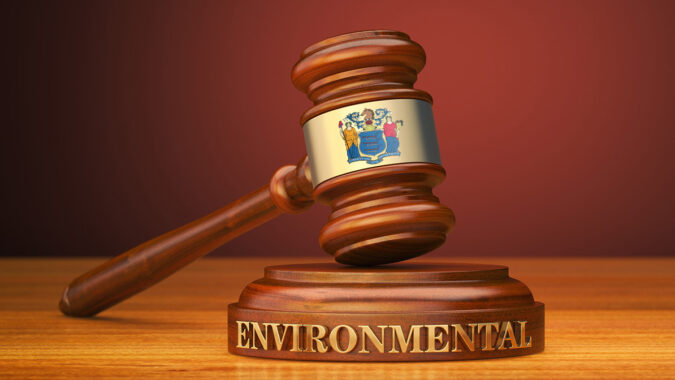In a win for the business community, the New Jersey Supreme Court recently reversed a lower court decision against a gas pipeline company planning to construct a compressor station on its existing right-of-way at a former quarry in the Highlands preservation region.
The case boiled down to an interpretation of the statutory language of the Highlands Water Protection and Planning Act. The state’s highest court on Tuesday agreed with the position taken by McCarter & English partner David Kott, who represented NJBIA in the amicus brief filed on behalf of the business community.
“Simply stated, the Highlands Act does not preclude development in this area; it limits only development that is incompatible with preservation and would therefore cause a decline in the environmental quality of the region,” Justice Michael Noriega wrote in the decision.
Tennessee Gas Pipeline Co., which owns and operates an interstate natural gas transmission system, plans to build various compressor stations along its transmission lines as part of the East 300 Upgrade Project aimed at maintaining increased flow rates. One of those proposed compressor stations, No. 327, is at an abandoned quarry in West Milford, where the company has an existing right-of-way.
The West Milford site is in the Highlands preservation region, but the project was not opposed by the Highlands Water Protection & Planning Council nor the state Department of Environmental Protection. The DEP’s 2021 “Highlands Applicability Determination” said the project qualified for an Exemption 11 under the Highlands Act, and noted the former quarry is a “historically disturbed” site with “disconnected and nonfunctional” wildlife habitats.
However, the Washington, D.C.-based consumer advocacy group Food & Water Watch appealed DEP’s decision, arguing that the language of Highlands Preservation Act should be narrowly construed to require that all upgrades at existing sites be “routine.” The lower appellate court had agreed and vacated the DEP’s determination.
The Supreme Court, however, noted the language of the Highlands Act states projects are exempt from Highlands regulations if they qualify as “routine maintenance and operations, rehabilitation, preservation, reconstruction, repair, or upgrade of public utility lines, rights of way, or systems, by a public utility, provided that the activity is consistent with the goals and purposes of this act.” The word “routine” applies only to the term “maintenance and operations,” not all the exempted activities listed in that sentence, the court said.
“The plain language of Exemption 11 leads us to conclude that ‘routine’ modifies only “maintenance and operations” and does not modify 'upgrade,’” the Supreme Court decision said.
To read the entire Supreme Court decision in The Matter of the Proposed Compressor Station (CS327) go here.




